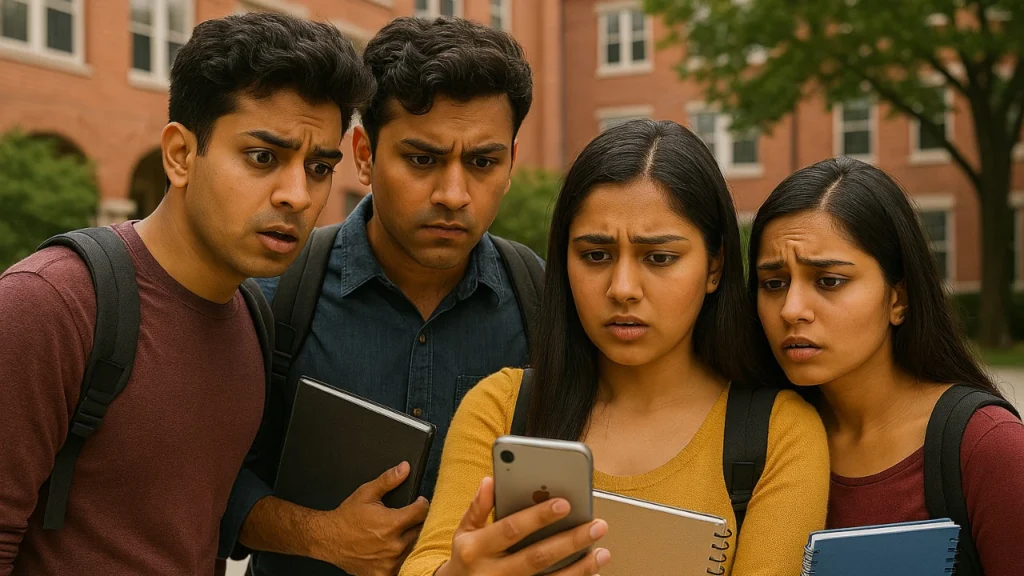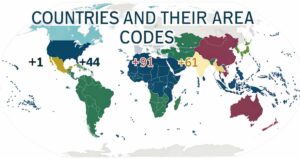Indian Students Face US Visa Hurdles Amid Stricter Social Media Vetting
5 min read
New Delhi, June 4, 2025 – The dream of studying in the United States, long a beacon of opportunity for Indian students, is facing unprecedented challenges. The Trump administration’s recent policies, including intensified social media vetting and a global suspension of student visa appointments, have left thousands of Indian students in a state of uncertainty. As the US tightens its immigration scrutiny, students are grappling with the fear that their digital footprints, posts, likes, or even casual comments, could jeopardize their visa applications. Experts warn, however, that hastily deleting social media content may do more harm than good.
Background: A Growing Barrier to the American Dream
The United States has been a top destination for Indian students, with over 330,000 enrolled in American universities in 2024, surpassing Chinese students for the first time in years. For many Indian families, a US degree represents a pathway to global success, often funded by life savings, loans, or even the sale of family assets. However, the Trump administration’s renewed focus on national security has led to stricter visa policies, particularly targeting international students. Following widespread pro-Palestine protests on US campuses in 2023, sparked by the Israel-Hamas conflict, the administration introduced enhanced social media screening to assess applicants’ political views and affiliations.
A recent executive order has further escalated concerns by pausing student visa (F, M, and J categories) appointments worldwide, leaving applicants for the August–September 2025 intake in limbo. This move, coupled with the use of artificial intelligence (AI) to flag content deemed “objectionable,” has created a climate of anxiety among Indian students, many of whom are now reevaluating their plans.
Breaking Down the Issue
1. Social Media Vetting: A New Layer of Scrutiny
The US State Department now requires visa applicants to disclose their social media handles for the past five years. Platforms such as Facebook, X, LinkedIn, Instagram, and TikTok are under review, with immigration authorities examining posts, likes, shares, and comments. The goal is to evaluate an applicant’s character and ensure their intentions align with visa objectives.
Mamta Shekhawat, founder of Gradding.com, explains, “Even a single like or share of content perceived as controversial, such as pro-Palestinian views, criticism of US policies, or anything hinting at political activism, can trigger visa rejections. Students need to understand that their online presence is an extension of their application.”
The use of AI tools, reportedly overseen by US Secretary of State Marco Rubio, has made this process more invasive. These tools can detect deleted posts or sudden changes in account activity, which may raise suspicions. “Deleting your entire profile might signal to authorities that you’re hiding something,” Shekhawat cautions. “It’s better to maintain a balanced, authentic online presence that reflects your academic and professional goals.”
2. The Risks of Over-Correcting
In response to these policies, many Indian students are taking drastic measures. For instance, Priya (name changed), a master’s candidate accepted at a top US university, deleted her Instagram and LinkedIn accounts after her visa counselor flagged her posts about global politics. Similarly, Arjun (name changed), a PhD scholar, switched his social media to private settings after his post-doctoral appointment was paused due to visa uncertainties.
However, experts warn that such actions can backfire. “Sudden deletion of content or accounts can be interpreted as an attempt to conceal information,” says Meenal Damani, an education consultant. “Instead, students should curate their profiles thoughtfully, highlighting achievements and avoiding engagement with polarizing topics.”
Sanjeev Anand, co-founder of Rostrum Education, notes that the definition of “objectionable” content remains ambiguous. “Posts about protests, geopolitical opinions, or even humor that could be misread as offensive are risky. Unfortunately, there’s no clear guideline, so students must err on the side of caution.”
3. Impact on Indian Students
The suspension of visa appointments has hit students planning to join US universities in the fall of 2025 the hardest. Varun Singh, managing director at XIPHIAS Immigration, says, “Students with pending I-20 forms or visa interviews are facing delays that could force them to defer semesters or lose scholarships. The uncertainty is causing financial and emotional strain.”
For families like that of Brijesh Patel, a textile trader from Surat, the stakes are high. Patel, who sold his wife’s jewelry to fund his son’s US education, is now hesitant to apply for a visa. “We’ve invested everything in this dream,” he says. “But with the current restrictions, we can’t risk a rejection. We’re considering options in the UK or Germany instead.”
A recent report by The Hindu estimates a 28% drop in Indian students heading to the US in 2025, with many shifting to countries like the UK, Germany, Ireland, and the Netherlands, which are seen as more welcoming to international students, especially in STEM fields.
4. Broader Context: A Shift in Global Education Trends
The US’s tightened policies are part of a broader effort to address security concerns, particularly after incidents of antisemitism and unrest on college campuses. However, this has sparked fears that the US may lose its appeal as a global education hub. “The US risks alienating talent,” says Piyush Bhartiya, co-founder of AdmitKard. “Countries like Germany and Canada are capitalizing on this by offering streamlined visa processes and affordable education.”
For students like Nihar Gokhale, who lost funding for a PhD program in Massachusetts due to administrative changes, the US is no longer a viable option. “I’ve accepted an offer in the UK,” Gokhale says. “The uncertainty in the US is too much to handle.”
What Can Students Do?
Education consultants offer the following advice for Indian students navigating this challenging landscape:
- Curate Your Digital Footprint: Share content that showcases academic achievements, community involvement, and career aspirations. Avoid engaging with controversial topics, even through likes or shares.
- Be Transparent: If questioned about past posts during visa interviews, explain your intent clearly rather than deleting content.
- Explore Alternatives: Consider universities in the UK, Canada, or Europe, which offer robust programs and more predictable visa processes.
- Plan Early: Work with reputable consultants to ensure your application, including financial and academic documents, is airtight.
Looking Ahead
The suspension of visa appointments and intensified social media vetting have cast a shadow over the aspirations of Indian students. While the US remains a coveted destination, the current climate of uncertainty is pushing many to explore alternatives. As Subash Devatwal, an education consultant in Ahmedabad, puts it, “The American dream is still alive, but it’s on hold for now. Students and families are resilient, they’ll find a way, whether in the US or elsewhere.”
For those still hoping to study in the US, the message is clear: a mindful online presence and careful planning are more critical than ever.







